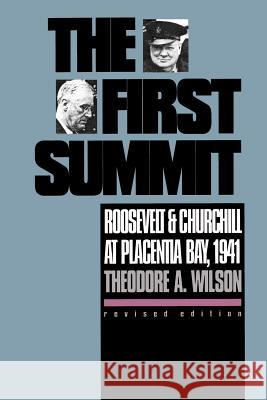The First Summit: Roosevelt and Churchill at Placentia Bay, 1941 » książka
topmenu
The First Summit: Roosevelt and Churchill at Placentia Bay, 1941
ISBN-13: 9780700604852 / Angielski / Miękka / 1991 / 338 str.
Four months before Pearl Harbor, Winston Churchill and Franklin D. Roosevelt met in secret aboard a ship in a secluded Newfoundland harbor. This was the first summit conference of World War II.
Although it would soon be overshadowed by the events to come, the 1941 summit at Placentia Bay produced dramatic results. It confirmed the policy of material aid for Britain and sanctioned the "Atlantic Charter." It also laid the groundwork for the three-way alliance that would bring about the destruction of the Axis powers. "I am sure that I have established warm and deep personal relations with our great friend," Churchill cabled his cabinet from Argentia Harbor. In this revised edition of his classic study, which won the Society of American Historians Parkman Prize, historian Theodore Wilson has expanded and updated the narrative. Drawing upon a wealth of primary sources made available since the first edition (British official records, declassified material in the Roosevelt Library and National Archives, along with the papers of such British and American officials as George C. Marshall, Adolf Berle, Orlando Ward, Sir Alexander Cadogan, and Lord Halifax), he has added nearly 40% new material. The First Summit is now totally grounded in archival research and authoritative in a way that the original version could not be. Wilson carefully analyzes the events of August 1941 and concludes that President Roosevelt was not totally in control. As the country lurched from crisis to crisis, bureaucratic politics and organizational dynamics were far more influential than FDR in determining the evolution of U.S. strategy, U. S. policy toward Japan, Anglo-American economic relations, and the efforts to mobilize for war. Wilson also recaptures the drama and color of the shipboard discussions from Roosevelt's bizarre working methods to Churchill's choice of entertainment in the evenings. The resulting narrative bristles with detail and puts forth a rounded, confident argument establishing the meeting at Argentia as a landmark in the history of war diplomacy.










